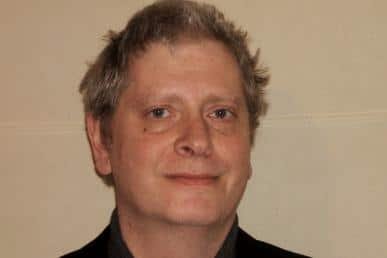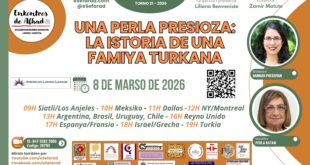The Jewish community in Spain: a special case

The Jewish community in Spain is an unusual case. In fact, there are many people who are surprised to know that it even exists, assuming that the Edict of Expulsion signed in 1492 by the Catholic monarchs Isabel de Castilla and Fernando de Aragon remains in effect.
Some have learned about the current situation from the news about the Spanish law that grants citizenship to the descendants of those expelled. Therefore, we are a community with a great past, but an often unnoticed present.
It is true that the numbers are not as great as in neighboring countries, where the existence of Jews is well known, such as in France. In Spain, the estimates vary from 20,000 to 60,000 thousand, most of them, unfortunately, far from any of the few representative Jewish institutions.
These are the Jewish communities within each city and religious orientation, three schools, and a social and sports club without its own center, all of which are centred around the Federation of Jewish Communities of Spain. The Federation is also in charge of a weekly 15-minute show on public television («Shalom») and the only Jewish journalistic outlet with nationwide coverage, Radio Sefarad, an Internet radio station founded 13 years ago, which broadcasts mostly in Spanish, and which I have had the honour to manage for the last five.
The history of the modern communities in this country is also striking. In spite of the fact that the ban on Jewish religious practices was still valid, for 150 years Spain allowed not only the presence of Jews but also synagogues in the Spanish cities (ancient military fortresses) in North Africa: Ceuta and Melilla.
Also, in the first decades of the 20th century Spain became a refuge for many Jews fleeing from other European countries, usually for reasons of safety (Balkan wars, WWI, etc.). However, the victory of the Nationalists (led by Franco) in the Spanish Civil War (1936-1939) brought with it the rise of an ultra-catholic nationalism that put an end to those glimpses of religious freedom.
Despite this – and especially towards the end of WWII when the upcoming end of the Reich was already clear, Spain served as a way-station for many Jews fleeing death in Europe for more secure destinations overseas.
During the following years, the Franco regime even allowed the presence of Jews as long as their places of worship did not distinguish themselves with any external sign.
The very small community that had been established was greatly strengthened at the end of the 60s, when the anti-Semitism that flourished in Morocco beginning with the Six Day War in 1967 caused a wave of emigration that, in the North of the country (which had been a Spanish Protectorate during nearly a century) was directed mainly to the large cities of the peninsula: Madrid, Barcelona and, to a lesser extent, to Mediterranean coastal towns, from Malaga to Valencia.
The newcomers brought with them their culture and their ways of organizing communities, always around Orthodox religious life and directed by local leaders in each city, without cross institutions.
The human panorama changed again in the mid-70s with the arrival in the country of many South American Jews exiled for political or ideological reasons, and with a very different profile: Ashkenasis who were secular, but with strong roots of identity, who were used to other forms of community organization, which clashed with the local conservatism, although as time passed these conflicts began to be resolved.
This coincides with the arrival of democracy and the drafting of a Constitution that guarantees freedom of religion. Shortly thereafter, in 1982, a law that defines Judaism (along with Protestantism and Islam) as a religion «of notable roots» was passed. The Ministry of Justice was charged with the establishment of an institutional dialogue, and from 2004 on their funding has been in the hands of a Foundation, based on specific projects.
In the case of the Jews, the aim is to improve our image (which has suffered from anti-Semitic prejudice since the times of the Inquisition) and the project, Radio Sefarad, which for this reason may be the only Jewish media in the world with more gentile than Jewish listeners.
Since then, the relationship of successive governments to the Jewish community has improved, culminating in the aforementioned nationality law which, surprisingly, was approved unanimously by the Congress, from the parliamentary right wing to the extreme left, including Basque and Catalonian pro-independence groups.
Fortunately the extreme right minority does not have parlamentary representation.
Another issue is the view with regard to the Israeli-Palestinian conflict: the BDS (Boycott,Divestment, Sanctions) movement is very active on the left and the right is less friendly with Israel than they promise (as they always follow the French initiatives in foreign policy).
Although there is some support of Israel from small non-party groups, the limited demographic and political weight of the community prevents this issue from becoming part of the national agenda.
As a conclusion we could say that Jews in modern Spain are a “work in progress”, with increasing visibility, but still far from that of other countries in the region.
Jorge Rozemblum is director of www.radiosefarad.com
There are Jewish communities in about 20 Spanish cities: in the biggest ones (Madrid & Barcelona) you can find more synagogues (about 8 in Madrid, maybe the same in Barcelona), but most of them with just one, mostly Sephardic Orthodox, and again in big cities (Madrid, Barcelona, Valencia and Sevilla) also one Masorti or Progressive.
Most of the international Jewish organisations have a delegate (KKL, Keren Hayesod, WIZO, Friends of different Israeli universities,…) or share one with neighboring countries as Portugal or France, but they are not very active. Centro Sefarad Israel isn’t a Jewish organisation but a Spanish governamental one dealing with Spanish Jewish (and Sephardic) heritage, with a very active agenda, mostly in Madrid.
Spain and Israel stablished diplomatic relationship only in 1986 but the two countries have generally very good relations, not so much regarding the Israeli-Palestinian conflict, an issue in which Spain always follow the European Union and French positions.
Anti-Semitism has never been a problem in the country but there is a great ignorance about Jews and still a lot of footsteps of anti-Semitism in the common language. There is a great amount of anti-Semitism at the political level regarding left and extreme left wing parties promoting BDS initiatives. On the religious side, the Spanish Church has started a dialogue with Jewish organisations.
Written by Jorge Rozemblum
Source: European Jewish Press 23.2.2017
 eSefarad Noticias del Mundo Sefaradi
eSefarad Noticias del Mundo Sefaradi

